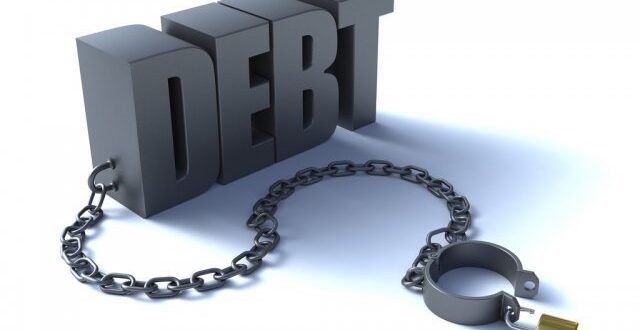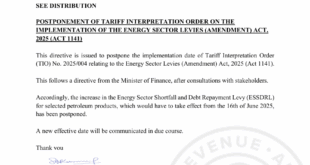Ghana’s debt will ‘plateau’ at approximately 75% of Gross Domestic Product (total value of goods and services produced in an economy within a period) from 2024, international ratings agency, Fitch, has said in its latest paper on “Energy Sector Debt a Risk to Ghana’s Post-Pandemic Debt Trajectory”.
Accordingly, the debt will continue to rise in 2021 and 2022 due to high Covid-19 pandemic-related spending and the realisation of energy sector liabilities.
Fitch affirmed Ghana’s sovereign rating (B/Stable) in October 2020, on an expectation of a gradual recovery, both in economic performance and fiscal revenue following the pandemic shock, the availability of external and domestic financing sources, and the eventual stabilisation of debt/GDP.
“However, Ghana’s public finances are complicated by a history of domestic arrears and by contingent liabilities that will continue to add to its public debt stock”, it said
Energy sector debt to rise
It also said the country’s energy sector faces both a stock of debt outstanding and ongoing losses that is due to inefficient operational environment and wasteful tariff structure.
This some energy experts are raising fears of a probable collapse of the power sector that could have significant effect on the economy.
During the covid-19 pandemic, the government provided electricity subsidies to consumers, but it’s unclear whether the subsidies have been paid as of now.
In December 2020, the Ministry of Finance announced that its progress on the Energy Sector Recovery Programme (ESRP) included the clearing of US$1 billion in debt to Independent Power Producers and deals made with power-generation companies that could save up to US$5 billion.
“We believe that the government’s actions will avert the worst-case scenario, but that additional liabilities of as much as US$12 billion could fall on the government if such efforts fail”.
Though government adopted the Energy Sector Reform Programme to clear remaining liabilities and to put the sector on a clear financial footing to avoid future shortfalls, Fitch said implementation of the programme has been poor.
It estimates current unmatched energy sector debt at between 4% and 5% of GDP, stressing, “we expect that efforts to clear existing energy sector arrears will add a little over 1% of GDP to Ghana’s government cash deficit each year through 2023.”
However, the amount of energy sector arrears to materialize on the government’s balance sheet beyond 2023 will depend on the success of government efforts to reform the energy sector.
Covid-19 spending pushes Ghana’s debt to GH¢286bn
Ghana’s public debt stock jumped from GH¢274.1 billion in September 2020 to GH¢286.9 billion in November 2020, according to the January 2021 Bank of Ghana’s Summary of Economic and Financial Data.
This was equivalent to $50.2 billion and represented 74.4% of GDP
According to the data, between October and November, the nation added ¢12.8 billion to its total public debt stock.
This was largely from covid-19 expenditure in a form of stimulus packages to households and businesses.
Source: Charles Nixon Yeboah
 MYGHANAMEDIA.COM Best Source Of Latest News
MYGHANAMEDIA.COM Best Source Of Latest News




